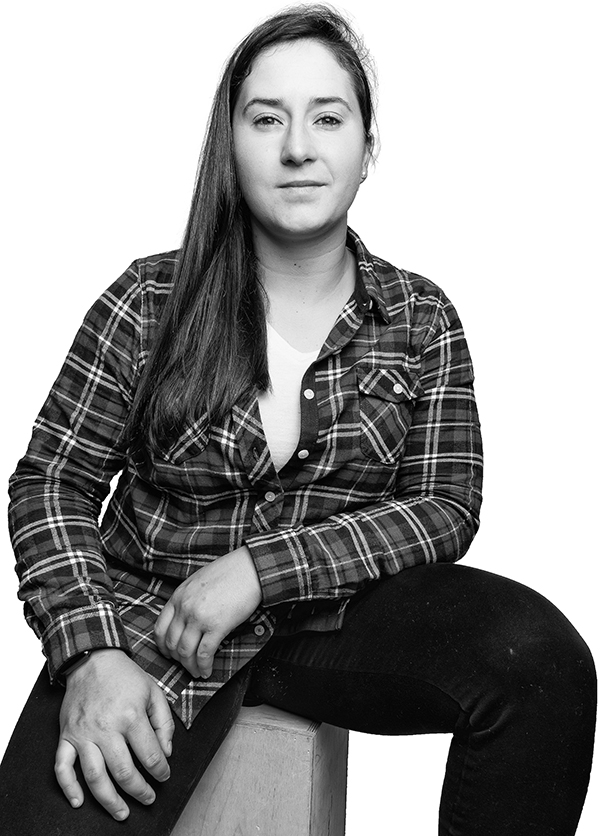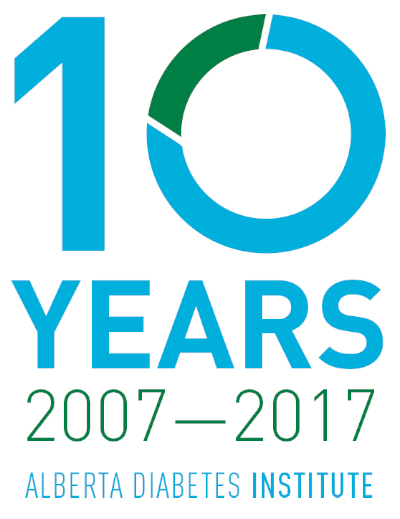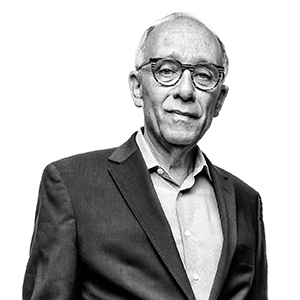ANISSA - Portraits of Diabetes

ANISSA
Type 1 diabetes-diagnosed 2001
I think it's a great motivator to see other people living and doing incredible things-this gives a sense of community. You're a product of your atmosphere and if you're surrounded by positive people, you'll do positive things.
In 2016 Anissa Gamble had just started as a master's student researching diabetes at the University of Alberta when she experienced first-hand its impact. She observed an islet transplantation that would mean a patient could live without insulin injections for some time.
"I kind of had a tear afterwards. It was just phenomenal and amazing to see the research and progress going on here in the Alberta Diabetes Institute," she says.
Today, she stands at her work station in front of a test-tube holder marked with the name Shapiro. James Shapiro, Anissa's supervisor, is one of many Edmonton researchers known internationally for their work on the Edmonton Protocol, a procedure whereby healthy islet cells are transplanted into someone with diabetes.
This year marks 10 years after the Alberta Diabetes Institute opened its doors. Here, advances like the Edmonton Protocol have put the province on the international map, leading towards newer research that includes work done by students like Anissa. She's looking at how different cell types could help islet transplants become even more successful, and while her work is still in the trial stages, she's already witnessing the progress of type 1 diabetes research.
For Anissa, the work is especially meaningful due to the diagnosis she received at the age of eight. She had to leave a school field trip to go to the hospital, where she stayed for a week before being released on Christmas Eve with the knowledge she had type 1 diabetes. It was scary and emotional news for her, as diabetes had already impacted her young life-before she was born, Anissa's grandmother had died from the disease.
"But Anissa was determined to be as healthy and positive as possible in the face of managing the disease. She's a talented hockey player, and on the ice she must continuously monitor her glucose levels. She always has a juice box at the ready in case her blood-sugar level dips, but she has come to believe her challenges have actually put her at an advantage.
"I think that throughout my life, focusing on hockey has allowed me to have really good control in the sense that to do really well in hockey, I have to have really good glucose management," she says.
That focus became essential 10 years ago, when at age 15 Anissa moved from her home in Fredericton, New Brunswick to Oakville, Ontario, to attend boarding school while playing competitive hockey. She had to learn as a young teen to manage her diabetes on her own. Later, as an undergraduate student at Robert Morris University in Pittsburgh, Pennsylvania, Anissa played Division 1 NCAA, the highest level in university hockey.
At that time, she generally did not speak about her diabetes and did not know many people with the disease, which meant she often felt alone and unsupported. But a lot has changed since then.
At the end of August, Anissa was a part of the Connected in Motion 2017 Adventure Team. She was one of 13 North Americans with type 1 diabetes to participate in a fundraising backpacking trip along Vancouver Island's North Coast Trail; the goal was to challenge misconceptions of what diabetes means while connecting with others. The group managed to overcome many difficult challenges on the trail while raising $25,000, which will help others with type 1 diabetes participate in activities and learn about their disease.
Anissa has also volunteered in research at the Alberta Diabetes Institute, taking part in studies that look at how different forms of exercise can impact blood-sugar levels. Throughout her life, she's benefited from diabetes research and now she's part of making a difference for others.
"I think it's a great motivator to see other people living and doing incredible things-this gives a sense of community. You're a product of your atmosphere and if you're surrounded by positive people, you'll do positive things," says Anissa.
The Alberta Diabetes Institute provides an optimal training environment for trainee researchers, ensuring the continuity of diabetes research and development.
Photography: Richard Siemens Writer: Caroline Barlott Editor: Sasha Roeder Mah Creative Director: MJ Fell






